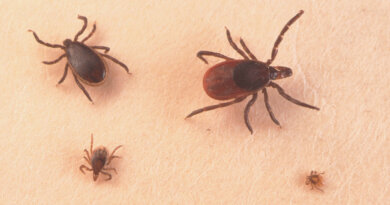Don’t Fall Prey to COVID-19 Scammers
[ad_1]
By Steven Reinberg
HealthDay Reporter
TUESDAY, March 31, 2020 (HealthDay News) — The COVID-19 pandemic has spawned a wave of scammers looking to take advantage of older adults, experts warn.
Social distancing has created an easy playground for “fraudulent telemarketers and internet scammers,” said Karen Roberto, a gerontology expert from Virginia Tech in Blacksburg.
“Elder financial abuse costs older Americans more than $3 billion annually, but we know the losses to elderly victims extend far beyond dollars and cents,” she said in a Virginia Tech news release. “Elder financial abuse and exploitation endangers the health and well-being of older adults and invariably, their quality of life.”
Here are Roberto’s tips for not being taken advantage of:
-
Stay socially engaged. “Socialize — remotely — with family members and friends,” she suggested. “Isolation can lead to loneliness, depression, and make you more vulnerable to financial abuse or exploitation.” -
Beware of telephone pitches. “Billions of dollars are lost each year because of fraudulent telemarketers,” Roberto said. “You are not being rude by hanging up when a solicitor calls.” Use caller ID to screen your calls. If you don’t know the number or name, don’t answer and don’t return messages, she advised. Social Security, Medicare and local police do not call asking for personal information. -
Hang up. “If you find yourself on a call with someone you don’t know or who is trying to sell food or paper products to help meet your needs during this pandemic, don’t engage in the conversation,” she advised. “Just hang up.” -
Guard your passwords. Never share passwords for ATMs, online or telephone transactions with banks, credit card companies, or anyone with whom you do business. -
Do not share personal information. Never give out personal information such as credit card numbers, bank account numbers, your date of birth, or Social Security and Medicare numbers. -
Report it. If you think you have been scammed, don’t be afraid or embarrassed. Tell someone you trust, such as family members, clergy or a bank manager. “You are not alone,” Roberto said. “The situation could become worse if you do nothing.”
[ad_2]
Source link





casibom guncel giris adresi: casibom giris – casibom guncel giris
casibom giris adresi
farmacias online seguras en espaГ±a: comprar cialis online seguro – farmacias online seguras en espaГ±a
farmacias direct: farmacias online seguras en espaГ±a – farmacia online madrid
farmacia online 24 horas: comprar cialis online seguro opiniones – farmacia online 24 horas
farmacia online senza ricetta: Cialis generico 5 mg prezzo – Farmacie online sicure
farmacia online senza ricetta: Cialis generico prezzo – comprare farmaci online con ricetta
viagra generico recensioni: viagra online siti sicuri – viagra ordine telefonico
farmacia online: BRUFEN 600 acquisto online – farmaci senza ricetta elenco
comprare farmaci online all’estero: farmacia online migliore – farmacie online autorizzate elenco
cialis farmacia senza ricetta: viagra online siti sicuri – viagra naturale in farmacia senza ricetta
neurontin 500 mg: neurontin 800 mg – prescription medication neurontin
prednisone 1 mg tablet: prednisone 5mg price – where can i buy prednisone without prescription
neurontin 800 mg price: buy neurontin – neurontin 2400 mg
rybelsus: buy semaglutide online – Buy semaglutide pills
indian pharmacy paypal: indian pharmacy paypal – п»їlegitimate online pharmacies india
india pharmacy: online Indian pharmacy – world pharmacy india